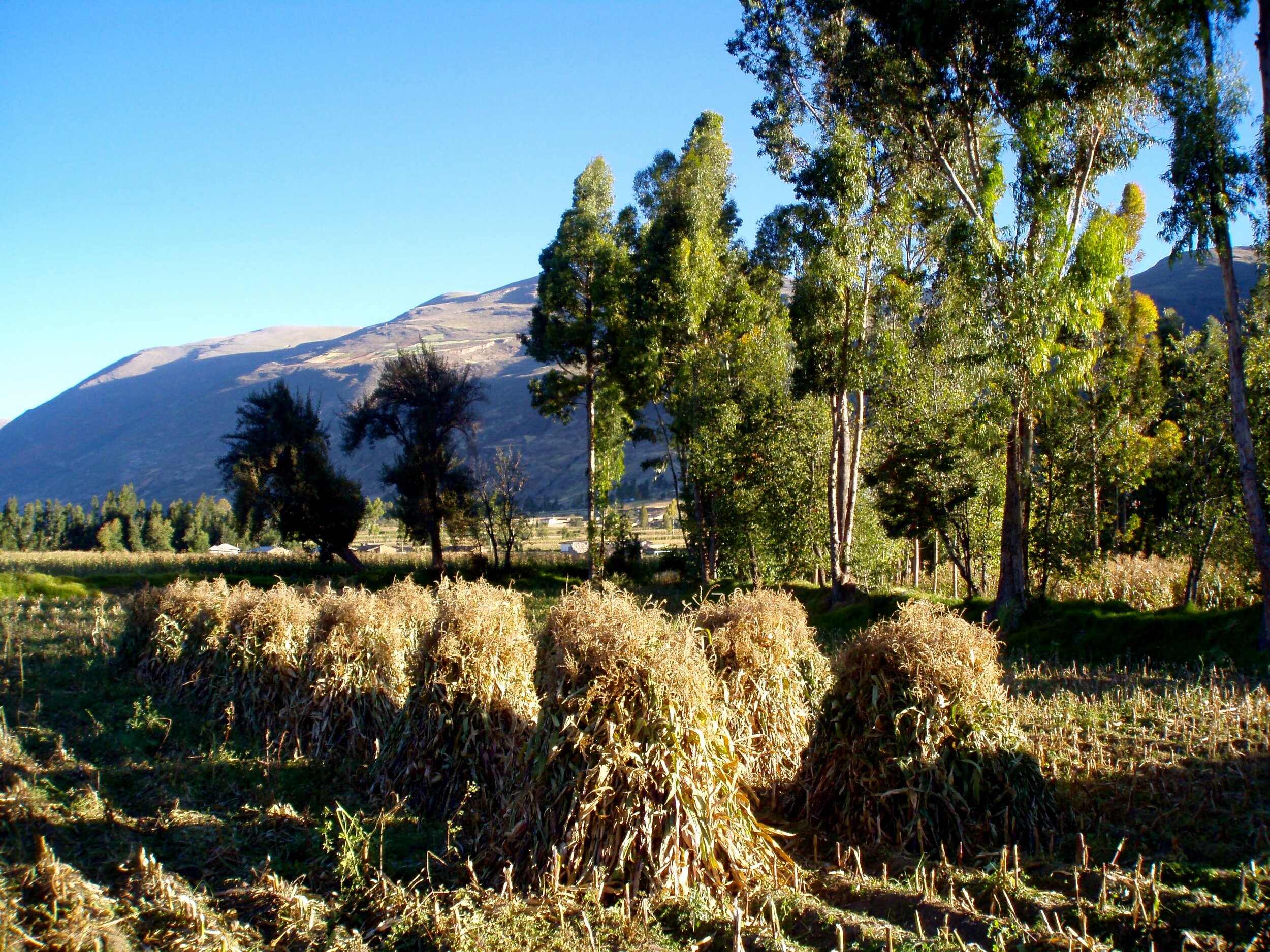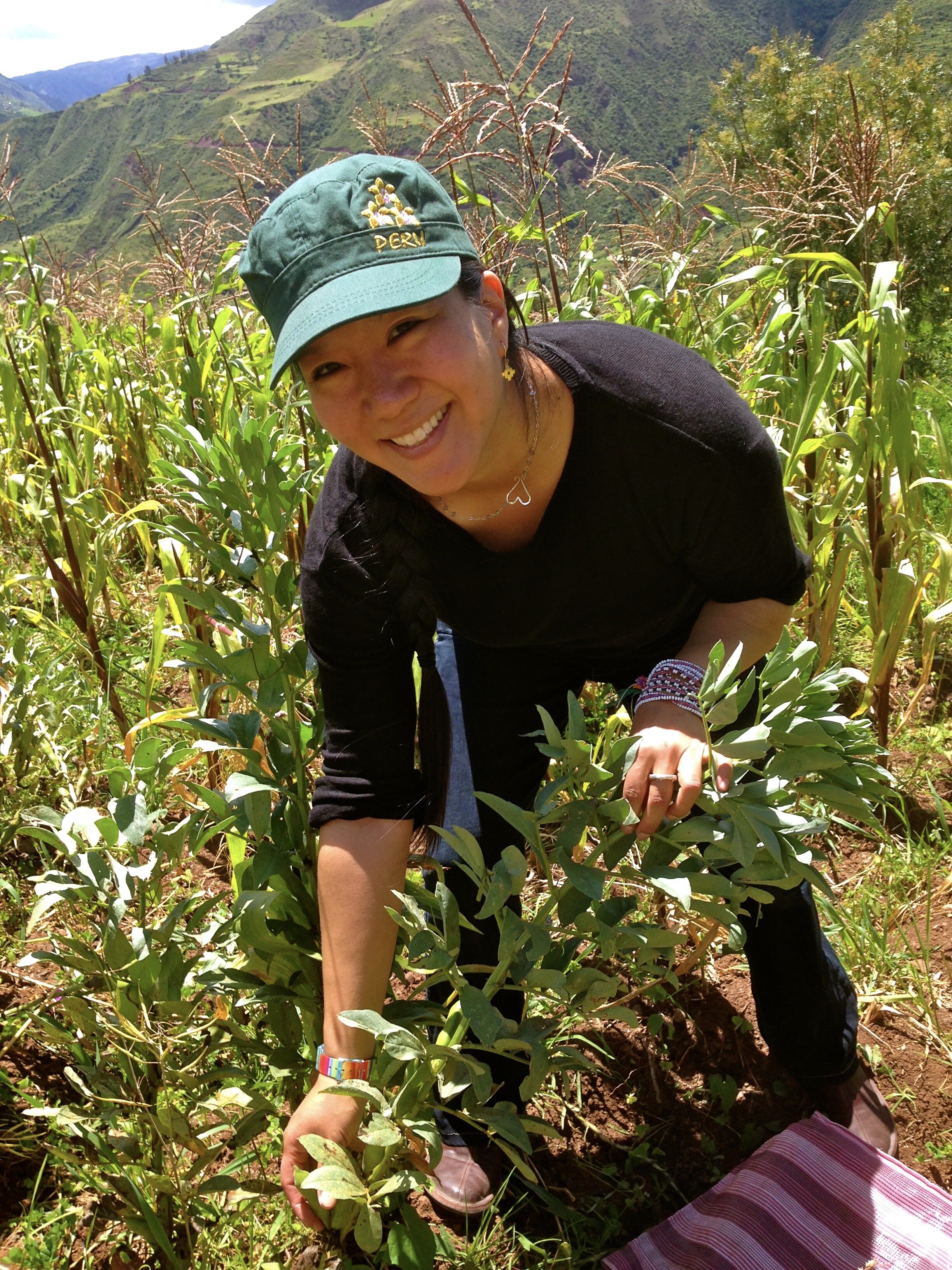“I am an educational researcher studying the relationship between Indigenous ecologies, cultural practices, and in and out-of-school educational development in the Americas. I collaborate with Indigenous communities and institutions that prioritize decolonial education, which requires maintaining and protecting Indigenous knowledge systems.”
— Elizabeth Sumida Huaman
Positionality
The South American country of Peru holds diverse landscapes, from lush rainforest to coastal cities and Andean highlands. The highlands are characterized by clear and immense sky, towering mountains, and beautiful farm fields. Situated in the Mantaro Valley of Junín is Chongos Bajo, an historically autochthonous Indigenous community that is my ancestral home. In an adobe house built by my grandparents, Antonieta Jesusa Carhuamaca and Antonio Huaman Rojas, my mother and her siblings were born and raised. From this home is a view of one of our sacred mountains, Waytapallana—source of water and spiritual renewal for the people of this region.
As a Wanka and Quechua female by genealogy and lineage, my cultural identity and academic life are shaped by dedication to Andean peoples and our ancestral homelands. As nunakuna/runakuna, we know that our cultural, linguistic, and environmental lives are rich, yet they are threatened by persistent colonial ideologies and global development. I work with Indigenous and minoritized peoples who are confronting threats to endangered earth and knowledge systems, and I am interested in respectful, creative, and beautiful educational design as critical intervention. This work is about honoring those who fought to keep us whole while daring to envision and build loving and healthy futures.
Educational Background
Ed.D., Families and Communities specialization, International Educational Development/Department of International & Transcultural Studies, Teachers College, Columbia University
Ed.M., Specialized Studies (International Education Policy focus), Harvard University Graduate School of Education
B.A., Anthropology modified with Native American Studies, Dartmouth College
My Research and Practice
Focal Areas
Indigenous Knowledge Systems and educational design (in and out-of-schools)
Ecology, environmental studies, and place-based education
Indigenous and Quechua research methodologies
Comparative Indigenous Education Research
Indigenous lands, extractive development, and national and local education policy and practice
Indigenous environmental and science curriculum and pedagogy (formal schooling, out-of-school, social pedagogy)
Indigenous rights education (IRE) and human rights education (HRE)
Earth Rights and Indigenous Rights in internationalization
Indigenous higher education and self-determination (Tribal Colleges and Universities, Intercultural universities)
For prospective master’s and doctoral students,
visit the Comparative and International Development Education program at the University of Minnesota, Twin Cities, where you can obtain information about studying with our world renowned faculty. Each faculty member has both general thematic expertise with theory development and specific geographic, population, and methodological research and policy experience and knowledge.
July 2022: The global Covid-19 pandemic has revealed critical gaps in the links between health, environment, economy, and policy. Your training as a graduate student is an opportunity to connect with change makers and creative thinkers as you pursue work that makes a difference in a number of ways, including through a) robust research development, b) policy analysis, and c) experimental educational design. This is a crucial time to think about how you will enact agency in a rapidly changing world.



